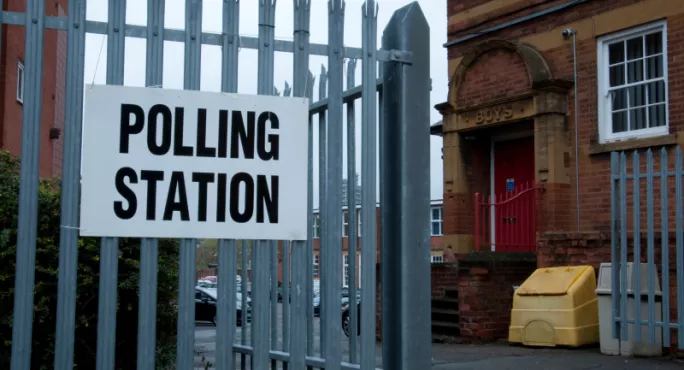- Home
- What should schools make of the Labour Party manifesto?
What should schools make of the Labour Party manifesto?

Election manifestos are always a delicate blend of the old and the new as they strive to bring forward a range of previously announced policies while keeping impartial observers and the party faithful on their toes with a few treats and surprises. The Labour Party’s manifesto for the 2019 election has provided a mixture of the “expected”, the “unexpected”, the “not entirely clear” and much more besides.
First, we have the “expected”. Scrapping university tuition fees, ensuring that “schools are properly resourced with increased long-term funding”, replacing Ofsted with “a new body, designed to drive school improvement”, reviving the Education Maintenance Allowance and culling key stage 1 and 2 Sats as well as baseline assessments is a bold list of changes by any measure. What’s more, free school meals for all primary school children, encouraging breakfast clubs and tackling the cost of school uniforms are in line with Labour’s pre-manifesto commitments.
Second, we have the “expected but not entirely clear”. It is no surprise to see Labour attack the academies system as “over-centralised, inefficient and undemocratic” or pledge to “end the fragmentation and marketisation of our school system by bringing free schools and academies back under control of the people who know them best - parents, teachers and local communities”. That said, we are left wondering what this means in practice for existing academies and multi-academy trusts that now educate half of all pupils in England.
On a related note, local authorities will be given “responsibility for school places, including the power to open schools”, but this does not definitively rule out bringing in new trusts and school operators through something akin to the current free schools programme. There is no mention of regional schools commissioners or the national schools commissioner either, although previous announcements suggest they should not expect a warm welcome under a Labour government.
Election 2019: What are Labour’s plans for education?
Another slightly confusing policy is the plan to “introduce an Arts Pupil Premium to fund arts education for every primary school child”. This comes across as a well-meaning initiative, but the manifesto does not explain why it would be necessary in the context of large increases in core funding for primary schools.
Third, we have the “unexpected”. Private schools were not anticipating an easy ride in the Labour manifesto after the recent scuffles over the future of the independent sector. Even so, the manifesto commitment to “close the tax loopholes enjoyed by elite private schools” suggests that charitable status and business rate exemptions are indeed set to be removed under a Labour government. Whether this means that “non-elite” private schools (whatever they are) will be let off the hook remains to be seen.
Regardless, Labour has gone even further than expected by saying that it will ask its proposed Social Justice Commission to “advise on integrating private schools and creating a comprehensive education system”. This is a significant statement of intent that, while lacking clarity, suggests that Labour’s ambitions do not stop at merely chipping away at private school tax breaks.
A potentially seismic announcement on the future of the entire education system was also quietly tucked into the manifesto, as Labour wants “a single national system of regulation that functions for education as our NHS does for healthcare provision”. If it is suggesting that everything from early years up to university will soon fall under the umbrella of a single regulator then I consider my gob well and truly smacked. It is sensible to avoid overlapping regulatory responsibilities between different sectors. Nevertheless, there are no answers provided to even the most basic questions about what this new national regulatory system might mean, and for whom.
Another unexpected but major intervention is found in post-16 education. Labour is offering a huge funding increase by “aligning the base rate of per-pupil funding in post-16 education with key stage 4”. This would mean closing the gap between the average of £6,200 per pupil in secondary schools and the £4,000 base rate for 16- to 19-year-olds. No timescales are given for this funding boost, but it is still an eye-catching bonus for school sixth-forms and colleges.
Finally, we have the “missing in action”. Grammar schools are nowhere to be seen. Faith schools and admissions policies more broadly are also notable by their absence. T levels - the new vocational qualifications set to be launched next year - do not get a mention anywhere. Evidently, Labour felt there was not enough to be gained by tackling any of these thorny policy questions before an election, although it would be unwise to assume that it does not have plans kept in a locked drawer in Labour HQ.
All in all, there is plenty for schools and colleges to mull over in Labour’s manifesto. The scale and breadth of investment across different parts of the education system is considerable, but policy wonks will rightly ask questions about whether these changes will necessarily lead to higher standards and better outcomes for pupils.
Tom Richmond is founder and director of the EDSK think tank, and a former government adviser on skills
Keep reading for just £1 per month
You've reached your limit of free articles this month. Subscribe for £1 per month for three months and get:
- Unlimited access to all Tes magazine content
- Exclusive subscriber-only stories
- Award-winning email newsletters



